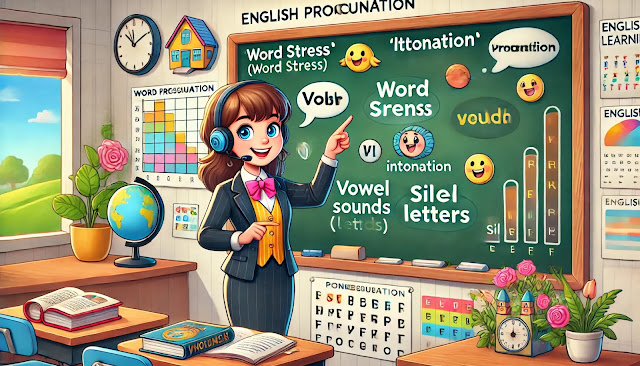Why Is Pronunciation Important?
Pronunciation plays a key role in communication. Even if you know a lot of vocabulary and grammar, poor pronunciation can make it difficult for others to understand you. Good pronunciation helps you sound more natural, improves your confidence, and makes conversations smoother.
What Makes English Pronunciation Difficult?
English pronunciation can be challenging for learners because:
Different spelling and sounds: The same letter can have multiple pronunciations (e.g., "a" in cat vs. "a" in cake).
Silent letters: Many words have letters that are not pronounced (e.g., know, honest).
Word stress: Some syllables are stressed more than others, changing the meaning of words (e.g., present as a noun vs. present as a verb).
Connected speech: Native speakers link words together, making them sound different from their written form.
Key Features of English Pronunciation
To improve your pronunciation, focus on these important aspects:
Vowel and consonant sounds – Learn how each sound is produced.
Word stress – Recognize which syllables are emphasized.
Sentence stress – Understand which words are stressed in a sentence.
Intonation – Pay attention to the rise and fall of your voice.
Linking sounds – Notice how words connect in fast speech.
How to Improve Your Pronunciation
Listen actively: Pay attention to native speakers through movies, songs, and podcasts.
Practice speaking aloud: Repeat words and sentences to build muscle memory.
Use phonetic transcription: Learn IPA (International Phonetic Alphabet) to understand correct pronunciation.
Record yourself: Compare your pronunciation with native speakers.
Practice with minimal pairs: Differentiate similar sounds (e.g., ship vs. sheep).
Shadowing technique: Imitate native speakers by repeating what they say immediately.
Final Thoughts
Improving pronunciation takes time and practice, but with consistency, you will sound clearer and more natural. In the next lesson, we will explore the English alphabet and basic sounds to build a strong foundation for your pronunciation journey.

Comments
Post a Comment